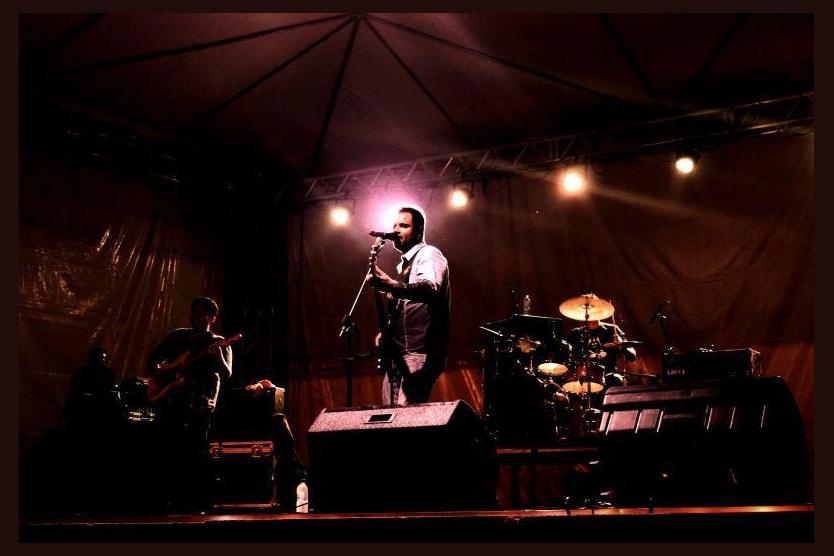 Taiguara Bruno
Taiguara Bruno
Taiguara Bruno: A Troubled Troubadour
Taiguara Bruno, a Brazilian singer-songwriter, emerged onto the music scene in the 1970s, leaving an indelible mark with his poignant lyrics and captivating melodies.
Early Life and Influences:
Born in 1944 in Paraná, Brazil, Taiguara's early life was marked by poverty and adversity. Music became his refuge, heavily influenced by Brazilian folk and popular music, as well as the social and political struggles of his country.
Challenges and Controversies:
Taiguara's career was not without its challenges. His outspoken lyrics often criticized the Brazilian military dictatorship, leading to his arrest and imprisonment. His alleged involvement with leftist political groups also hindered his career and subjected him to surveillance and harassment.
Breakthrough and Acclaim:
Despite the obstacles, Taiguara's talent eventually prevailed. In 1973, his song "Quem Vai Chorar Por Mim" (Who Will Cry for Me) became a massive hit, resonating with Brazilians yearning for freedom and justice. The song's haunting melody and poignant lyrics cemented his status as a leading voice of the Brazilian protest movement.
Discography and Legacy:
Over his career, Taiguara released several acclaimed albums, including "Fotografias" (1973), "Brazil" (1975), and "Voz e Violão" (1977). His music celebrated Brazilian culture, explored themes of love, loss, and social injustice, and inspired generations of musicians.
Members:
Taiguara Bruno was a solo artist, but he often collaborated with other musicians. Some of the notable musicians who played with him include:
* Aldir Blanc (lyricist)
* Nei Lopes (guitarist)
* Paulo César Pinheiro (guitarist)
Personal Struggles and Death:
Taiguara's personal life was plagued by addiction and depression. In 1996, he took his own life, leaving behind a legacy of powerful music that continues to inspire and move audiences today.
Taiguara Bruno's music remains a testament to the power of art to challenge authority, express the human condition, and unite people across borders and generations. His legacy as a troubadour of the people lives on, serving as a reminder of the enduring spirit of resistance and the transformative power of music.
Taiguara Bruno, a Brazilian singer-songwriter, emerged onto the music scene in the 1970s, leaving an indelible mark with his poignant lyrics and captivating melodies.
Early Life and Influences:
Born in 1944 in Paraná, Brazil, Taiguara's early life was marked by poverty and adversity. Music became his refuge, heavily influenced by Brazilian folk and popular music, as well as the social and political struggles of his country.
Challenges and Controversies:
Taiguara's career was not without its challenges. His outspoken lyrics often criticized the Brazilian military dictatorship, leading to his arrest and imprisonment. His alleged involvement with leftist political groups also hindered his career and subjected him to surveillance and harassment.
Breakthrough and Acclaim:
Despite the obstacles, Taiguara's talent eventually prevailed. In 1973, his song "Quem Vai Chorar Por Mim" (Who Will Cry for Me) became a massive hit, resonating with Brazilians yearning for freedom and justice. The song's haunting melody and poignant lyrics cemented his status as a leading voice of the Brazilian protest movement.
Discography and Legacy:
Over his career, Taiguara released several acclaimed albums, including "Fotografias" (1973), "Brazil" (1975), and "Voz e Violão" (1977). His music celebrated Brazilian culture, explored themes of love, loss, and social injustice, and inspired generations of musicians.
Members:
Taiguara Bruno was a solo artist, but he often collaborated with other musicians. Some of the notable musicians who played with him include:
* Aldir Blanc (lyricist)
* Nei Lopes (guitarist)
* Paulo César Pinheiro (guitarist)
Personal Struggles and Death:
Taiguara's personal life was plagued by addiction and depression. In 1996, he took his own life, leaving behind a legacy of powerful music that continues to inspire and move audiences today.
Taiguara Bruno's music remains a testament to the power of art to challenge authority, express the human condition, and unite people across borders and generations. His legacy as a troubadour of the people lives on, serving as a reminder of the enduring spirit of resistance and the transformative power of music.